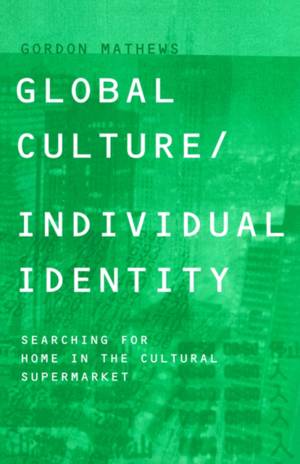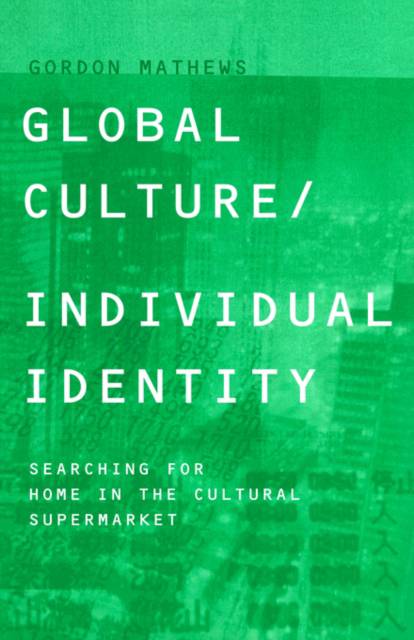
- Afhalen na 1 uur in een winkel met voorraad
- Gratis thuislevering in België vanaf € 30
- Ruim aanbod met 7 miljoen producten
- Afhalen na 1 uur in een winkel met voorraad
- Gratis thuislevering in België vanaf € 30
- Ruim aanbod met 7 miljoen producten
Global Culture/Individual Identity
Searching for Home in the Cultural Supermarket
Gordon MathewsOmschrijving
Most people still think of themselves as belonging to a particular culture. Yet today, many of us who live in affluent societies choose aspects of our lives from a global cultural supermarket, whether in terms of food, the arts or spiritual beliefs. So if roots are becoming simply one more consumer choice, can we still claim to possess a fundamental cultural identity?
Global Culture/Individual Identity focuses on three groups for whom the tension between a particular national culture and the global cultural supermarket is especially acute: Japanese artists, American religious seekers and Hong Kong intellectuals after the handover to China. These ethnographic case studies form the basis for a theory of culture which we can all see reflected in our own lives.
Gordon Mathews opens up the complex and debated topics of globalization, culture and identity in a clear and lively style.
Specificaties
Betrokkenen
- Auteur(s):
- Uitgeverij:
Inhoud
- Aantal bladzijden:
- 244
- Taal:
- Engels
Eigenschappen
- Productcode (EAN):
- 9780415206150
- Verschijningsdatum:
- 9/03/2000
- Uitvoering:
- Hardcover
- Formaat:
- Genaaid
- Afmetingen:
- 145 mm x 223 mm
- Gewicht:
- 412 g

Alleen bij Standaard Boekhandel
Beoordelingen
We publiceren alleen reviews die voldoen aan de voorwaarden voor reviews. Bekijk onze voorwaarden voor reviews.









